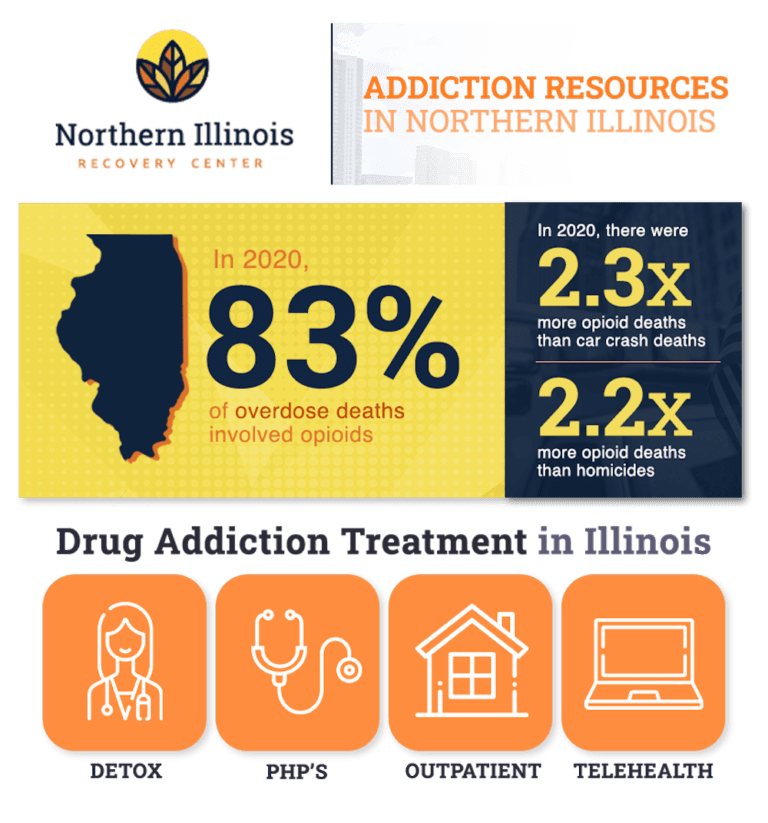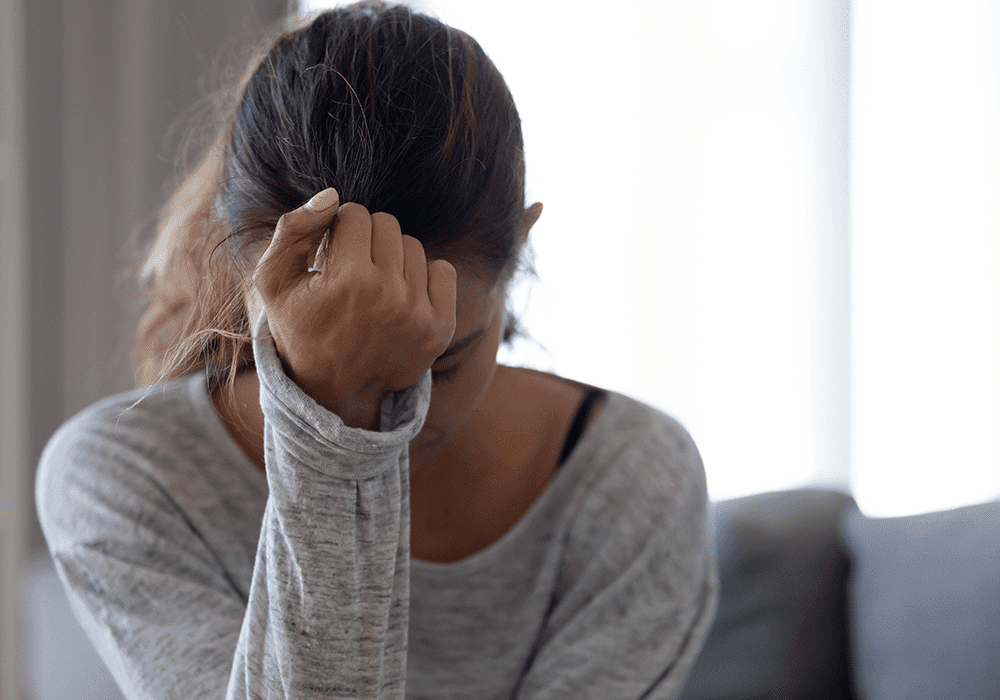Crystal Lake in McHenry County has a growing drug misuse problem. In 2018, there were at least 51 drug overdose deaths in McHenry County, which was more than double the number in 2011. Most substance-related fatalities that year were due to prescription opioids, followed by heroin, benzodiazepines, cocaine, and alcohol. A total of 27 opioid overdoses included fentanyl.
In the 2019 McHenry County SUD Needs Assessment, research showed that about 6,000 county residents went without needed drug treatment. The estimate for those going without alcohol treatment was much higher at 28%.
Opioid overdose deaths across Illinois comprised 80% of drug overdose deaths, totaling 2,169 in 2018. Drug overdose deaths, including all drugs, totaled 3,543 in 2020 in Illinois. That was an increase from 2,788 the year before. Total alcohol deaths were 533 in 2020, up from 464 in 2019. McHenry County and Illinois are fighting back against the drug overdose death trends by tracking down drug dealers and charging them with homicide. In 2021, McHenry County was the leader in charging drug dealers with homicide in drug-related deaths.
Dual Diagnosis Treatment: Addressing Mental Health and SUDs
As the name suggests, a dual diagnosis treatment plan focuses on treating both disorders. This is important since an underlying mental health condition may lead a person to use a substance. For example, a person who has depression may turn to cocaine to self-treat symptoms. In dual diagnosis treatment, mental health professionals help a person stop using a substance and treat an underlying mental health issue properly. This approach is important to reduce the risk of relapse, which is higher among people who need dual diagnosis treatment and do not receive it.

Addiction: A Brain Disease
Types of Addiction Resources in Northern Illinois
Treatment Programs and Therapy Structures
Depending on a person’s needs, one type of addiction therapy structure may be better than others. These are the main structures in treatment centers:
- Detox is the first step and usually involves 24/7 inpatient supervision, as well as medication to manage the side effects of withdrawal.
- A residential program involves staying in the facility 24/7 for several months or up to a year.
- An outpatient program involves therapy for at least a few hours each week with one or more facility or virtual visits.
- An intensive outpatient program includes multiple therapy sessions every week that often last a few hours each.
- A partial hospitalization program is usually five sessions that last five hours per week, but a person does not sleep at the facility.
When therapists recommend a treatment structure, one of their biggest concerns is a person’s risk of relapse. If the person is a high relapse risk, a residential or PHP program is better. These structures are also better for people who lack a supportive living environment or have a long history of substance misuse. People who have a lower risk of relapse or have a supportive living situation are better candidates for outpatient programs.
Also, those who have work, family, and other responsibilities may only be able to manage an outpatient program. However, when a person with a job needs residential or PHP treatment, a facility can help. The facility can provide information about the Family and Medical Leave Act, which allows time off for necessary medical treatment. When addiction treatment is necessary, it qualifies.
Therapeutic Addiction Resources in Illinois
- Cognitive behavioral therapy, or CBT, is a type of therapy that helps people identify behaviors and understand their causes.
- Dialectical behavior therapy, or DBT, is a form of CBT that helps people modify behaviors.
- Holistic therapy includes alternative approaches that support overall health, such as meditation for relaxation and nutrition for wellness.
CBT and DBT help people understand their triggers. Therapists teach them how to avoid some harmful triggers and deal with ones that may not be avoidable. People learn how to cope with life, and holistic therapies provide them with a way to replace destructive habits with healthier ones. Writing therapy, music therapy, exercise, and nutrition can all help people. For example, these therapies teach people how to express themselves and care for their bodies.
























